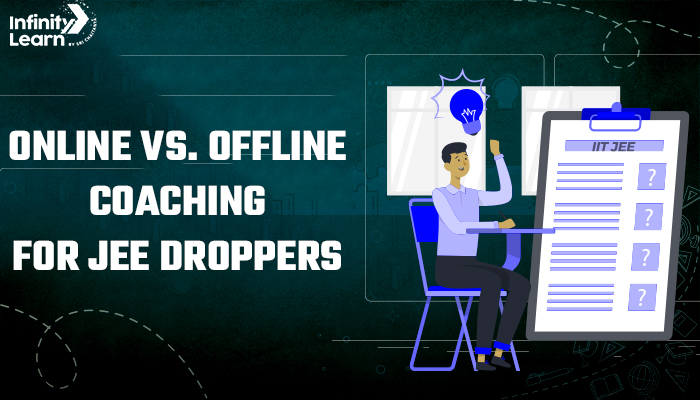
Courses

By Shailendra Singh
|
Updated on 21 Jan 2025, 14:23 IST
Preparing for the JEE (Joint Entrance Examination) is a daunting task, especially for droppers who have dedicated an extra year to secure a better rank. One of the crucial decisions that JEE droppers face is choosing between online and offline coaching. Both methods have their own set of advantages and drawbacks.
In this blog, we’ll compare online vs. offline coaching for JEE droppers, helping you make an informed choice.

Both online and offline coaching for JEE droppers have their own set of advantages and disadvantages. The choice ultimately depends on individual preferences, learning styles, and circumstances. By weighing the pros and cons, you can make an informed decision that aligns with your goals and maximizes your chances of success in the JEE exam.


Yes, online coaching for JEE is good as it offers flexibility, access to top educators, and comprehensive study materials. It is especially beneficial for students who need to manage their own schedules.
The choice between online and offline coaching depends on individual preferences. Online coaching offers flexibility and accessibility, while offline coaching provides a structured environment and face-to-face interaction.
Yes, many students have successfully cracked JEE with online coaching by utilizing the extensive resources, interactive sessions, and flexible study schedules provided by online platforms.
Some of the best online classes for JEE include platforms like Infinity Learn, which offer high-quality content, experienced educators, and interactive learning tools.
Yes, Infinity Learn offers a well-structured online course for JEE Droppers, providing comprehensive study materials, expert guidance, and regular assessments to help students improve their performance.
Both online and offline coaching have their merits. Online coaching is ideal for flexible and self-motivated learners, while offline coaching is beneficial for those who thrive in a structured environment with direct teacher interaction.